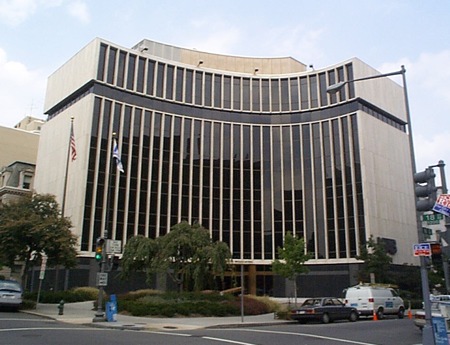NAB Slams ACA Bundling Comments as Program 'Segregation'

The smarter way to stay on top of broadcasting and cable industry. Sign up below
You are now subscribed
Your newsletter sign-up was successful
With the FCC signaling a program diversity Notice of Proposed Rulemaking in the works, perhaps voted as early as this month, broadcast and cable operators are sparring over what should be in that proposal, with the National Association of Broadcasters telling the FCC cable ops may be trying to put dollars before diversity by "encouraging MVPDs to segregate their programming lineups according to race or ethnicity."
After the American Cable Association asked earlier this week that the FCC take a hard look at program bundling, NAB responded Thursday that it was "extremely disturbing," pointing to ACA's language opposing bundling of urban programming for rural systems and Spanish-language programming for systems with few Spanish-speaking customers.
NAB said such a provision would have an "unfortunate" exclusionary effect, warning that the FCC's "otherwise good intentions" could be exploited by pay TV providers to "target their programming channels in a manner more profitable for them but less diverse for consumers."
The American Cable Association fired back at the suggestion of "segregation."
"For broadcasters to suggest that ACA's position promotes 'segregation ... according to race and ethnicity' is unfortunate and highly misleading," said ACA president Matt Polka. "Overall diversity increases when individual small cable operators can choose the programming that best serves their particular local audiences (like independent Spanish-language programming in Puerto Rico). And overall diversity decreases when big conglomerates can force their national networks upon local audiences that may not want them (like the Esquire Network in some rural areas). Nothing about this position should surprise broadcasters-who, after all, have a rule allowing them to reject unwanted network programming."
According to sources, new access to independent programming rules would be based on the Charter-Time Warner Cable merger access conditions.
The NPRM is expected to propose applying industrywide the Charter-TWC condition—contained in a Department of Justice consent decree—that prohibits New Charter from preventing programmers from doing deals with online video distributors (OVDs) like Netflix.
The smarter way to stay on top of broadcasting and cable industry. Sign up below
That would include codifying the associated DOJ conditions that distributors will not be able to employ most-favored-nation (MFN) clauses if "they are inconsistent with [that] prohibition," and that distributors are also prohibited from retaliating against programmers for licensing to OVDs.
It could potentially do more, but that would be the baseline—the item is said to be a work in progress but with the goal of potentially voting on it at the FCC's September meeting.
The NPRM stems from a Notice of Inquiry launched last February in response to a request from Clyburn after agreeing to support mergers, including Charter-TWC, in which access to independent programming issues were raised.
Contributing editor John Eggerton has been an editor and/or writer on media regulation, legislation and policy for over four decades, including covering the FCC, FTC, Congress, the major media trade associations, and the federal courts. In addition to Multichannel News and Broadcasting + Cable, his work has appeared in Radio World, TV Technology, TV Fax, This Week in Consumer Electronics, Variety and the Encyclopedia Britannica.

